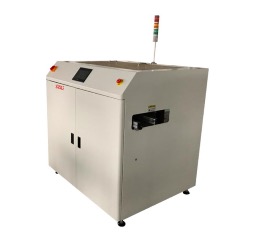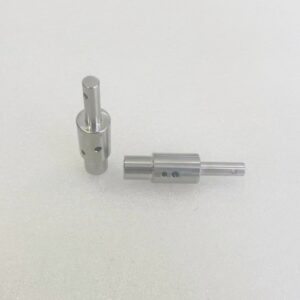A lithium battery for inverter systems has revolutionized the energy storage sector, providing superior efficiency, longevity, and adaptability compared to traditional alternatives. Its advanced technology makes it a preferred choice for modern inverters in both residential and industrial settings. This article explores how a lithium battery for inverter improves energy storage efficiency through its technical advantages, applications, and broader impacts.
Table of Contents
ToggleKey Advantages of a Lithium Battery for Inverter Systems
Lithium batteries bring significant technological enhancements to inverter systems, optimizing their performance and energy management.
- High Energy Density
One major advantage of a lithium battery for inverter use is its high energy density, which typically ranges between 150–250 Wh/kg. This allows for more energy storage within a compact space, making it ideal for solar power systems and backup applications. For instance, a 5 kWh lithium battery weighs approximately 35 kg, significantly less than a lead-acid battery of similar capacity, which may exceed 60 kg.
- Enhanced Charge and Discharge Efficiency
A lithium battery for inverter systems offers an efficiency rate of over 95%, meaning minimal energy loss during charging or discharging processes. This efficiency surpasses traditional lead-acid batteries, which average around 80–85%. Consequently, users benefit from reduced energy waste and faster charging times, particularly valuable in intermittent energy sources such as solar or wind power.
Why Lithium Batteries Are Ideal for Inverter Applications
Lithium batteries are designed to meet the specific demands of modern inverter systems, ensuring reliability and sustainability.
- Longevity and Cycle Life
Lithium batteries outlast traditional options with a cycle life of 2,000–5,000 cycles compared to 500–1,000 cycles for lead-acid batteries. For example, in an inverter system running daily cycles, a lithium battery can last 10–15 years, drastically reducing replacement costs.
- Scalability and Versatility
Another reason why lithium batteries are ideal for inverters is their scalability. Unlike other battery types, lithium batteries can be easily configured to match varying voltage and capacity requirements. This flexibility is particularly beneficial in large-scale energy storage systems and off-grid solutions, ensuring compatibility with diverse inverter models.
Broader Implications of Lithium Battery Use
The adoption of lithium batteries in inverter systems extends beyond individual performance improvements, impacting sustainability and innovation.
- Environmental Benefits
Lithium batteries are more environmentally friendly than traditional lead-acid batteries due to their longer lifespan and higher recyclability rate. Studies suggest that widespread adoption of lithium batteries in energy systems could reduce global electronic waste by approximately 15–20% annually.
- Innovation in Energy Systems
The integration of a lithium battery for inverter systems drives innovation in renewable energy, enabling more efficient storage and utilization of solar and wind power. This innovation supports global efforts to transition towards sustainable energy infrastructure, making lithium batteries a cornerstone of future energy solutions.
In conclusion, a lithium battery for inverter systems not only enhances energy storage efficiency but also addresses broader economic and environmental needs. Its high energy density, efficiency, longevity, and versatility position it as an integral part of modern energy systems, driving progress in both individual applications and global sustainability efforts.
0




